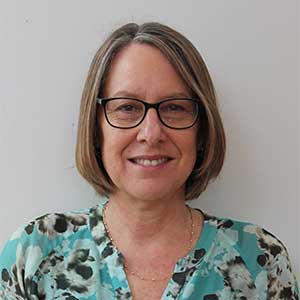The Agency for Clinical Innovation's Clinical Genetics Network brings together clinicians, consumers and representatives across the sector to improve the delivery of clinical genetics services in NSW. The network’s co-chairs share how it is supporting best practice and improved patient experience.
Clinical Genetics Network Co-Chairs

Dr Lisa Worgan
Senior Staff Specialist, Clinical Geneticist
Head of Clinical Genetics Service
Institute of Precision Medicine and Bioinformatics, Royal Prince Alfred Hospital, Sydney Local Health District

Bronwyn Burgess
Genetic Counsellor
Manager – Hunter Genetics Clinical Genetics Service
Hunter Genetics, Waratah Campus, Hunter New England Local Health District
What is the purpose of the Clinical Genetics Network?
In October 2016, the Genetics Services Advisory Committee transitioned from the NSW Ministry of Health and became the Agency for Clinical Innovation (ACI) Clinical Genetics Network, supported by an Executive Committee.
The committee provides expert advice on policy and planning issues in clinical genetics and genomics. The network also communicates the network’s initiatives to the genetics community.
Initiatives include:
- developing best practice models of care
- clinical guidance for health service delivery
- the translation of advances in genetics and genomics into clinical practice in NSW.
Tell us about your network members and the expertise they bring?
“The Clinical Genetics Executive Committee members represent the broader network of genetic departments and services from across local health districts, Sydney Children’s Hospitals Network, other specialty health networks, NSW Health Pathology, Ministry of Health and eHealth NSW,” says Clinical Genetics Network Co-Chair Dr Lisa Worgan.
“We also have representatives who are consumers and representatives from the Centre for Genetics Education, tertiary research institutions, national charity groups (such as Genetic Alliance Australia) and national special interest groups (such as the Human Genetics Society of Australasia and the Australasian Society of Genetic Counsellors).”
The committee and network members have expertise in:
- paediatric and adult genetics
- hereditary cancer
- cardiac genetics
- metabolic disorders
- maternal fetal medicine
- reproductive genetics
- rare genetic conditions and diseases
- pathology and laboratory services
- research and education.
What have been some key achievements of the network?
“We’ve recently published the Clinical genomics model of care, which guides clinical genomics services to provide equitable access to care for people in NSW,” says Clinical Genetics Network Co-Chair Bronwyn Burgess. “The model identifies four clinical priority areas to ensure patients receive the right services at the right time. These are access, timeliness, optimising health and ongoing care.”
The network has developed a toolkit to help health services implement the model of care. The toolkit includes clinical tools, templates and resources to help clinical genomics and other health services:
- optimise appointment allocation and management
- use limited resources in the best way possible for patients
- support the delivery of patient-centred care.
“The network also developed NSW genomic consent forms for all public health services requesting genetic or genomic testing,” explains Bronwyn.
“In addition, the network was a key stakeholder of the NSW Health Genomics Strategy and supported the NSW Health Genomics Strategy Implementation Plan 2018-20.”
What will the network focus on over the next year?
“The network will support the Clinical genomics model of care’s staged implementation, focusing on phase one sites,” explains the Kerrie Martin, A/Network Manager. “We will also continue to support the NSW Health Genomics Strategy and review genetic policy directives.”
The network will be involved in the NSW Health Genomics Strategy Implementation Plan 2021-25, supporting the strategy and key initiatives in clinical genomics focused on enhancing disease management and prevention.
How do you foster collaboration and keep your members engaged?
“To keep members engaged, we aim to have a collaborative and open approach to member discussions,” explains Lisa. “This is particularly important when overcoming the challenges to providing equitable clinical genetics services.”
The network fosters collaboration through various working groups, meeting updates and reporting mechanisms, Lisa adds. “Effective communication across the ACI’s networks and taskforces to achieve improved outcomes for patients is important. We also regularly communicate through heads of departments.”
What are your tips for leading an effective clinical network or group in a virtual environment?
“To be effective, the network needs to have a clear agenda for meetings and a clear plan for any working groups,” explains Lisa. “This can be challenging, but given our members come from across the state, we’ve had better attendance in virtual meetings and working groups, which is encouraging for the future success of the network.”
“The support from Kerrie Martin, the ACI Network Manager is invaluable to the effective organisation and coordination of the Clinical Genetics Network group,” says Bronwyn.